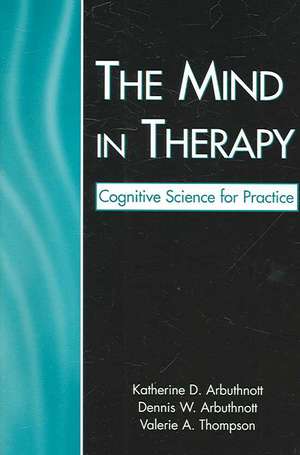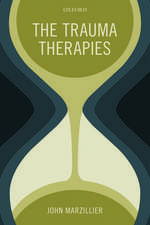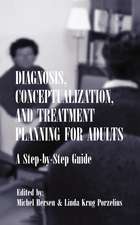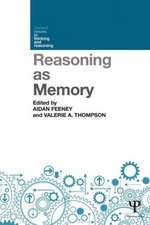The Mind in Therapy: Cognitive Science for Practice
Autor Katherine D. Arbuthnott, Dennis W. Arbuthnott, Valerie A. Thompsonen Limba Engleză Paperback – 11 oct 2005
The Mind in Therapy bridges the gap. It offers a comprehensive overview of the relevant range of cognitive activities, ranging from complex mental operations such as problem solving, decision making, reasoning, and metacognition to basic functions such as attention, memory, and emotion. The authors integrate key new findings about the interaction between cognition and emotion, inhibition, and counterfactual thinking--processes that loom large in practice. Each chapter reviews an area of cognitive research, clearly explains the findings, and highlights their implications and applications in diverse models of therapy--cognitive, behavioral, psychodynamic, humanistic, and family. Each includes case vignettes that illustrate the ways in which the concepts are important and useful in practice.
All therapists rely on the human mind to effect the change they seek. The clearer understanding of human cognitive capacities, idiosyncrasies, and limitations--their own as well as clients'--that they will gain from this book will enhance the effectiveness of both beginning and experienced practitioners, whatever their orientation.
| Toate formatele și edițiile | Preț | Express |
|---|---|---|
| Paperback (1) | 381.89 lei 6-8 săpt. | |
| Taylor & Francis – 11 oct 2005 | 381.89 lei 6-8 săpt. | |
| Hardback (1) | 707.19 lei 6-8 săpt. | |
| Taylor & Francis – 11 oct 2005 | 707.19 lei 6-8 săpt. |
Preț: 381.89 lei
Nou
Puncte Express: 573
Preț estimativ în valută:
73.08€ • 76.02$ • 60.33£
73.08€ • 76.02$ • 60.33£
Carte tipărită la comandă
Livrare economică 15-29 aprilie
Preluare comenzi: 021 569.72.76
Specificații
ISBN-13: 9780805856750
ISBN-10: 0805856757
Pagini: 440
Dimensiuni: 152 x 229 x 23 mm
Greutate: 0.59 kg
Ediția:1
Editura: Taylor & Francis
Colecția Routledge
Locul publicării:Oxford, United Kingdom
ISBN-10: 0805856757
Pagini: 440
Dimensiuni: 152 x 229 x 23 mm
Greutate: 0.59 kg
Ediția:1
Editura: Taylor & Francis
Colecția Routledge
Locul publicării:Oxford, United Kingdom
Public țintă
ProfessionalCuprins
Contents: Introduction. Problem Solving: The Structure of Psychotherapy. Memory Retrieval Cues and Priming. Autobiographical Memory: The Stories and Scenes of Our Lives. Autobiographical Memory Errors. Prospective Memory and Psychotherapeutic Homework. Attention: The Eye of the Mental Hurricane. Category Judgment. Decision Making: Gathering and Evaluating Evidence. Reasoning: Evaluating Conclusions and Determining Cause. Counterfactual Thinking: If Only and What If. Metacognition: What You Know About How You Think. Emotion and Cognition: Mutual Influences. Catharsis or Containment: Inhibition and Health. Psychodynamic Principles as Cognitive Mechanisms. Prospect and Review: Cognition Throughout the Process of Therapy.
Recenzii
"The book is engagingly written, and this is a major achievement considering that the subject matter....The authors have selectively edited these two huge fields down into their critical elements, and the result is immediately accessible. This book will be of greatest interest to practicing therapists and to those in psychotherapeutic training who wish to improve their understanding of cognitive science....very useful to cognitive scientists who are interested in learning about the ways in which their basic science finding can be used in applied settings...may serve to generate hypotheses for those who conduct clinical and cognitive research."
—PsycCRITIQUES
—PsycCRITIQUES
Notă biografică
Katherine D. Arbuthnott, Dennis W. Arbuthnott, Valerie A. Thompson
Descriere
Cognitive processes are the raw materials of psychotherapy & recent research has shed new illumination on their operation. Richly illustrated with case material, this book is a practical guide to what is most relevant and important for therapists to









